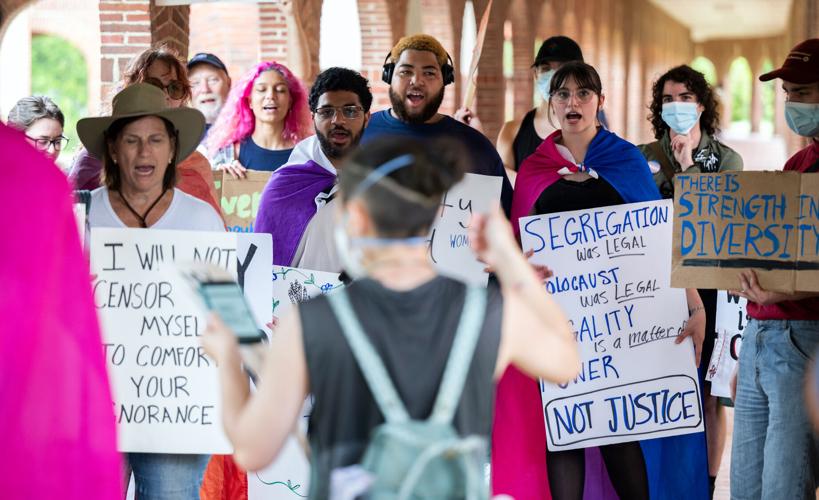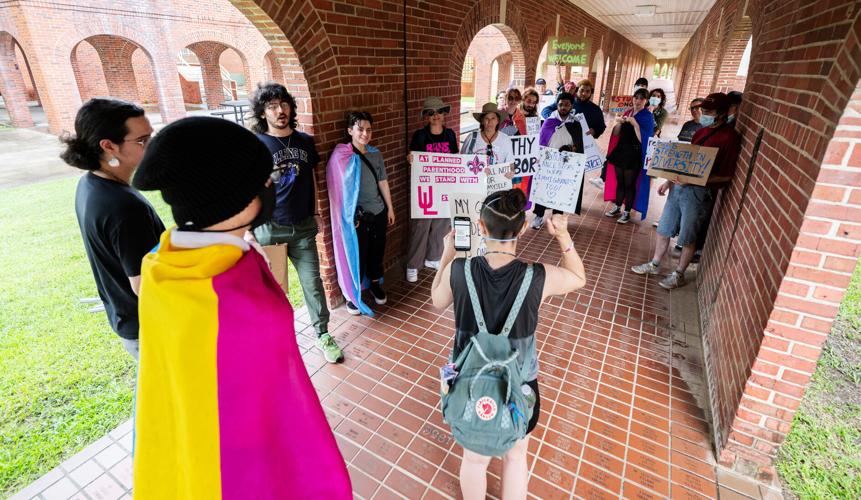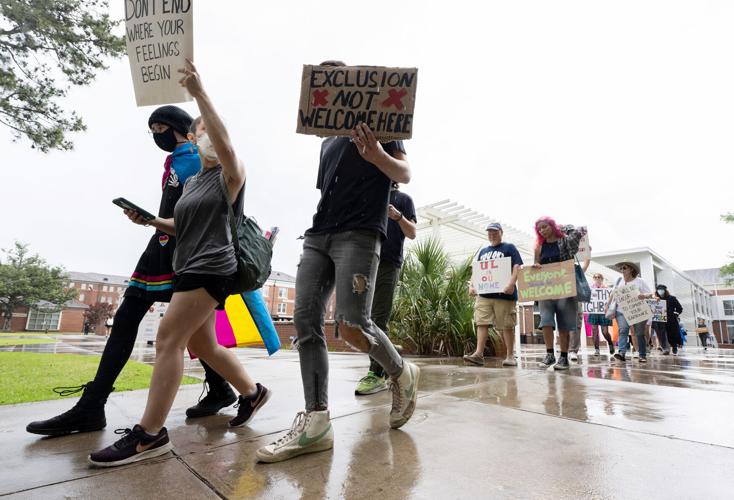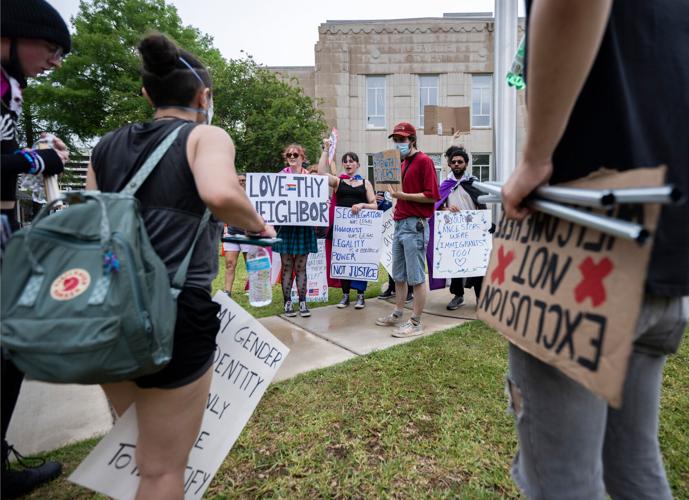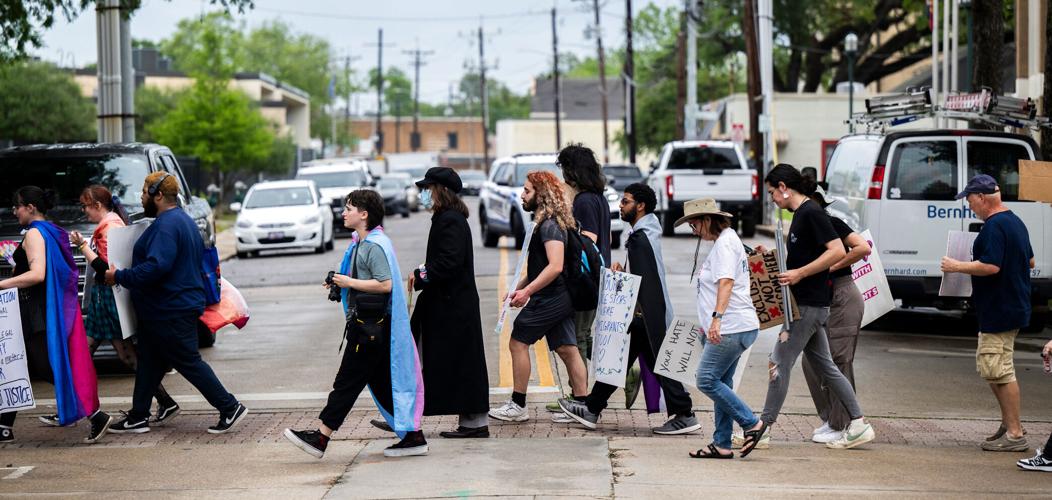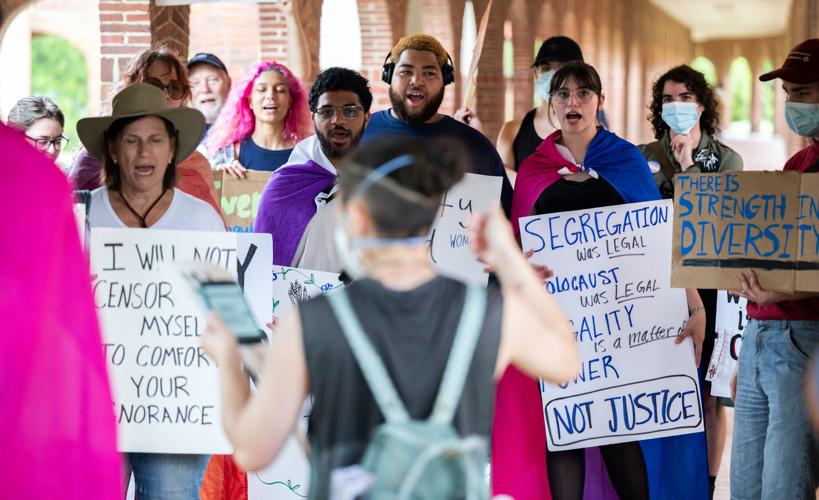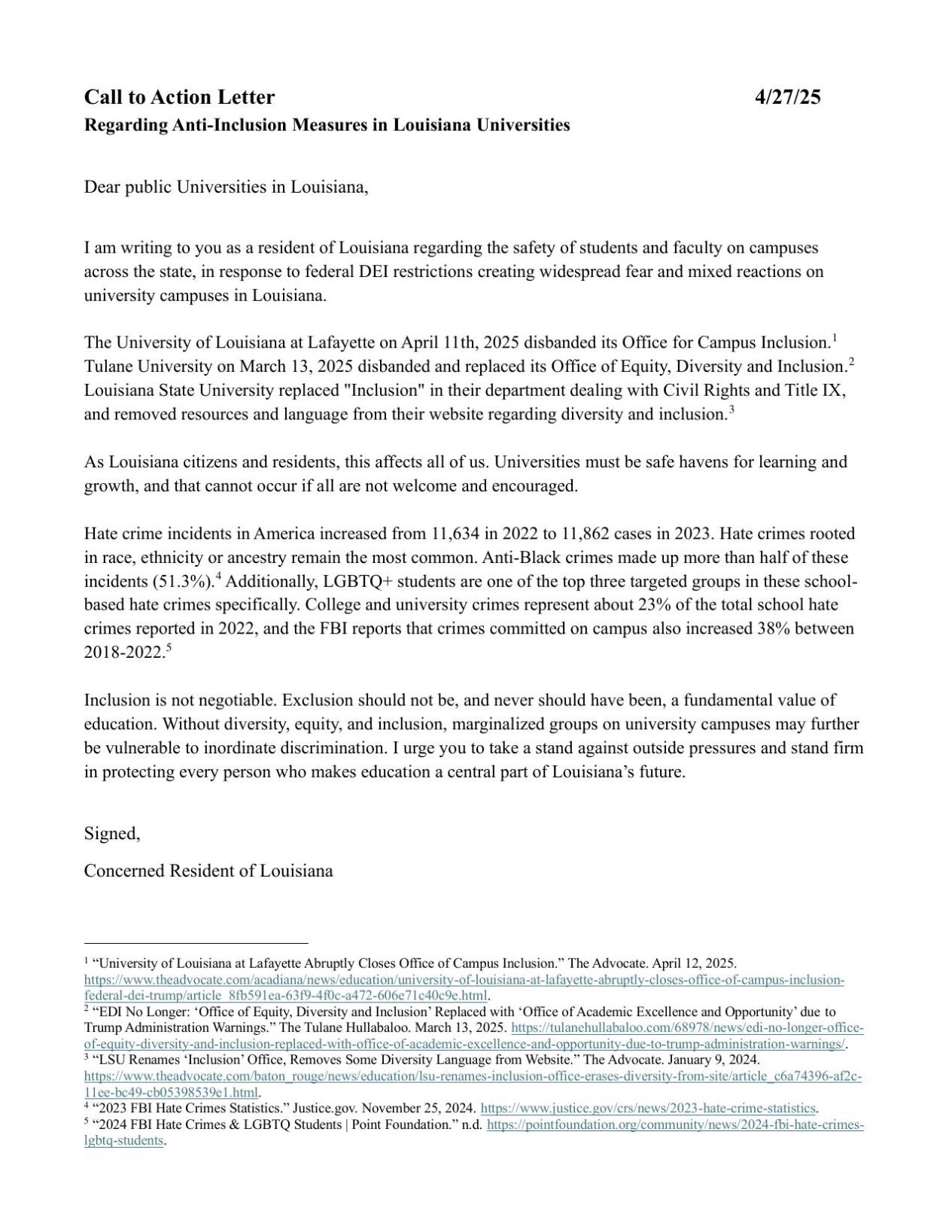A small group of University of Louisiana at Lafayette students and community members gathered in the rain Wednesday to speak out against the school’s rollback of diversity, equity and inclusion efforts.
They marched from the student union on campus to downtown Lafayette holding signs and chanting, hoping to call attention to the change in programming not just at UL, but at schools across Louisiana.
“Inclusivity matters,” said Jae Regan, part of the Lafayette Inclusion Task Force, which organized the event. “We want the university to be accountable. All students should feel safe.”
In a letter shared by the Lafayette Inclusion Task Force, supporters asked UL and other universities in the state to “stand against outside pressure and stand firm in protecting every person who makes education a central part of Louisiana’s future.”
The university abruptly closed its Office of Campus Inclusion on April 11 to come into compliance with a federal directive. The office’s two employees accepted positions in another university office.
Other services and avenues that allowed students to file complaints about discrimination on campus also have been dissolved or absorbed into larger offices, making the process more cumbersome, said Jolie Daigle, president of UL’s chapter of Giving Love, Acceptance, Safety & Support (GLASS).
The changes and closures come as President Donald Trump and his administration target diversity, equity and inclusion efforts at higher education institutions across the United States. Republicans and other DEI critics argue the efforts are discriminatory, make white people feel guilty and push progressive ideas on students.
In February, the U.S. Department of Education issued guidance to colleges and universities, claiming that all race-conscious policies and programming violated the law.
Even before the changes, Daigle said, LGBTQ students and other students of minority and marginalized groups weren’t treated like a priority on campus compared to students who come from traditional backgrounds.
And without those resources, Daigle said, those groups will become even less of a priority.
“Student groups are having to step up and fill in for what the university should be doing,” Daigle said.

